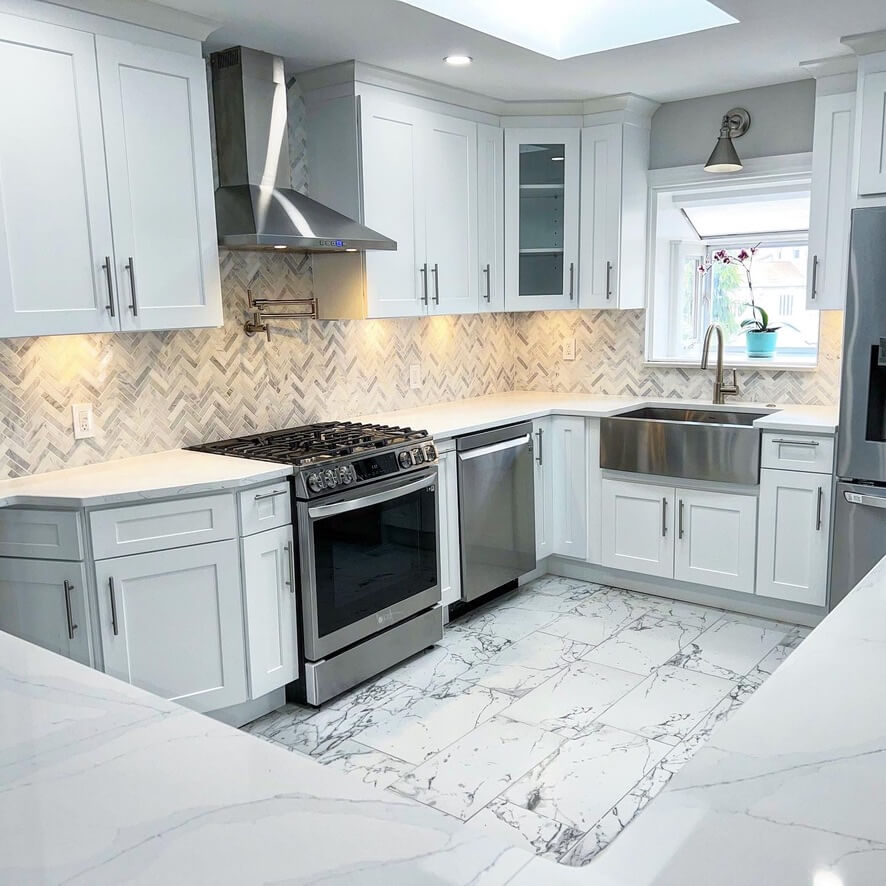Hiring the right home renovation contractor can make the difference between a dream home and a renovation nightmare. A well-executed renovation can enhance the functionality, comfort, and value of your home, while a poorly managed project can lead to stress, wasted money, and subpar results. Here’s a comprehensive guide based on our 25 years of renovating homes to help you navigate the process of finding and hiring the right contractor for your home renovation project.
1. Get Clear on Your Project Scope and Budget
Before you begin searching for a contractor, it’s important to clearly define your project scope and budget. Knowing exactly what you want to achieve will help you communicate effectively with potential contractors and ensure you’re all on the same page.
- List Your Needs and Wants: Prioritize what’s essential and what would be nice to have.
- Set a Realistic Budget: Research typical renovation costs and include a buffer for unexpected expenses.
- Detail Your Vision: The more specific you are about your needs, the easier it will be for contractors to provide accurate quotes. Find images that speak to your vision to help guide the design process, such as Pinterest boards.
2. Seek Recommendations and Do Your Research
Word of mouth is often the best way to find a reliable contractor. Start by asking friends, family, neighbors, and colleagues for recommendations. Additionally, use online resources to expand your search.
- Ask for Referrals: Personal recommendations can provide insights into the contractor’s work quality and reliability.
- Check Online Reviews: Websites like Yelp, Angie’s List, and Google Reviews can give you a broader perspective on a contractor’s reputation.
- Look for Credentials: Ensure the contractor has the necessary licenses and certifications required in your area.
3. Verify Licensing and Insurance
Hiring a licensed and insured contractor is non-negotiable. This protects you from liability in case of accidents or damage during the project.
- Check State Licensing Boards: Verify the contractor’s license and ensure it’s current.
- Confirm Insurance Coverage: Ensure the contractor has both general liability insurance and workers’ compensation insurance.
- Ask for Proof: Don’t just take their word for it; ask for copies of their license and insurance certificates.
4. Review Portfolios and References
A contractor’s portfolio can give you a sense of their style and capabilities. Reviewing past projects and speaking with former clients can provide valuable insights into their workmanship and professionalism.
- Review their Portfolio: Look for projects similar to yours to gauge their experience.
- Contact References: Speak to past clients about their experience, the quality of work, and if the project stayed on budget and schedule.
- Visit Completed Projects: If possible, visit a completed project to see the work firsthand.
5. Interview Multiple Contractors
Don’t settle for the first contractor you find. Interview multiple candidates to compare their expertise, communication skills, and pricing.
- Prepare Questions: Ask about their experience, approach to your project, timeline, and potential challenges.
- Evaluate Communication: Choose a contractor who listens to your needs and communicates clearly and effectively.
- Get Multiple Bids: Comparing bids can help you understand the market rate and spot any outliers.
6. Understand the Contract Details
A detailed contract is crucial for protecting your interests and ensuring that both parties understand the project’s scope and expectations.
- Include Project Scope: Clearly outline the work to be done, materials to be used, and specific inclusions and exclusions.
- Set Payment Terms: Define the payment schedule, including any deposits and milestone payments.
- Specify Timeline: Include start and completion dates, as well as any penalties for delays.
- Warranty and Guarantees: Ensure the contract includes any warranties on work and materials.
7. Communicate Clearly and Regularly
Effective communication is key to a successful renovation project. Regular updates and open lines of communication can prevent misunderstandings and keep the project on track.
- Set Expectations: Establish how often you’ll receive updates and through which medium (phone, email, in-person meetings).
- Be Available: Make sure you’re available to answer questions and make decisions promptly.
- Document Changes: Keep a record of any changes to the original plan and update the contract as necessary.
8. Monitor Progress and Quality
Stay involved throughout the renovation process to ensure the work meets your standards and progresses according to plan.
- Regular Site Visits: Visit the site frequently to monitor progress and address any concerns.
- Quality Checks: Verify that the materials and workmanship meet the agreed-upon standards.
- Problem Resolution: Address issues as they arise to prevent them from escalating.
9. Be Prepared for the Unexpected
Even with the best planning, unexpected issues can arise during a renovation. Flexibility and a problem-solving mindset can help you navigate these challenges.
- Expect Delays: Weather, supply chain issues, or unforeseen problems can cause delays.
- Budget for Contingencies: Set aside 10-20% of your budget for unexpected expenses.
- Stay Positive: Approach problems calmly and work with your contractor to find solutions.
10. Final Walkthrough and Completion
Before making the final payment, conduct a thorough walkthrough to ensure all work has been completed to your satisfaction.
- Punch List: Create a list of any incomplete or unsatisfactory items and have the contractor address them.
- Final Inspection: Verify that all work is completed and meets your expectations.
- Collect Documentation: Obtain any necessary permits, warranties, and documentation for future reference.
Hiring the right home renovation contractor requires careful planning, thorough research, and clear communication. By following these steps, you can increase the likelihood of a successful renovation that enhances your home’s value and your enjoyment of the space. Remember, a good contractor will not only bring your vision to life but will also make the process as smooth and stress-free as possible. Take your time, do your due diligence, and make an informed decision to ensure your home renovation project is a success.



